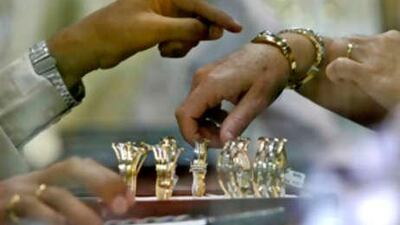ABU DHABI // Tourists who come to the UAE for cultural reasons are key to the economy as they spend more money than those drawn by the sun and beaches, the Minister of Foreign Trade has said. Speaking during the Global Creative Leadership Summit in New York, Sheikha Lubna al Qasimi said cultural tourists are becoming a major contributor to the UAE's economy. "The UAE has been successful in maintaining its traditional roots while achieving significant economic and societal growth," she said. "Cultural tourism allows us to showcase this to both our foreign guests and our citizens who want to know more about our past, present and future. This unique segment of the country's thriving tourism industry has emerged as one of our top income generating activities." Sheikha Lubna said cultural tourism would help both the economy and the development of the UAE's cities. "Our unique and progressive approach to urban development reflects the UAE's general strategy of diversifying its economic activities and preparing for the next level of national growth," she said. In addition to its old souks and mock heritage villages, the UAE is earning international attention with its growing cultural initiatives. Dubai is building a new concert hall, created in tandem with the London Philharmonic Orchestra. The hall will form the centrepiece of Dubai Culture Village, a section of the city near Dubai Creek to be devoted to galleries, entertainment and high-end shops. However, Dubai which attracted about seven million tourists last year, is still better known for its hotels, long sandy beaches and tall buildings. Abu Dhabi for its part is promoting itself as the cultural capital, spending US$27 billion (Dh98.5bn) on a district on Saadiyat island that will house the Louvre and Guggenheim museums. Sharjah also is leaning on its cultural attractions to draw crowds, including annual art exhibitions featuring Emirati and international artists. The emirate currently has a heritage area, planetarium and several museums. John Podaras, the associate director of Tri Hospitality Consulting, said it was necessary for the UAE to continue to develop itself as a destination for culture seekers. "What is meant by 'ordinary tourism' is what happens in places like Spain and Costa Del Sol, where they will build hotels and send an airline and a few chartered buses to the place," said Mr Podaras. "You get nice numbers but that type of tourism isn't sustainable because it's not engaging the local population and the produce has to be imported." The Middle East is selective about the type of tourist it attracts as the region does not want its indigenous culture to be hurt by the influx of foreigners. Pristine destinations lose their value to visitors as more people travel there, said Mr Podras. Because of this, the country needs to create a tourism industry that values the local culture. "That kind of tourism boosts the integrity of an area," Mr Podaras said. "What the region needs to do is to develop tourism sustainably and in a way that doesn't impact on the environment." Cultural tourism offers another advantage, Mr Podaras said, by appealing to a smaller, more discerning market of travellers, allowing the country greater control over the types of tourists that visit. By providing an educational experience, the UAE may be aiming for an older, more affluent demographic which is not tied to the traditional travel season of summer, Mr Podaras said. Mubarak Hamad al Muhairi, the director general of the Abu Dhabi Tourism Authority, also recognised the development of the capital's cultural district as a key to the country's long-term growth. "Culture was identified by the government of Abu Dhabi as a means of opening a wider global dialogue, of playing an instrumental role in the evolution of Abu Dhabi into a stately world capital and, of course, of adding to the emirate's international standing as a destination of distinction," he said in a statement. Tourist guide Ali Alsaloom said most of his clients are keen for an introduction to Arabic culture. "They want to meet a local person," said the cultural consultant for Embrace Arabia, and one of the few Emirati tour guides in Abu Dhabi. "They want to understand the dress, the gutra and the abaya. They want to do desert safaris and to purchase handmade gifts. If you come to the Middle East, you want to experience Arabian hospitality." Mr Alsaloom has dedicated much of his career to teaching foreigners about Arabic culture and said many come to visit Sheikh Zayed Mosque, or watch a falcon hunt. "Yes, tourists do want a nice beach and they know it is sunny here most of the time, but that doesn't mean they don't care about culture." jgerson@thenational.ae

Cultural tourists key to economy
Tourists who visit the UAE for cultural reasons are key to the economy as they spend more money than those drawn by the sun.
Most popular today
